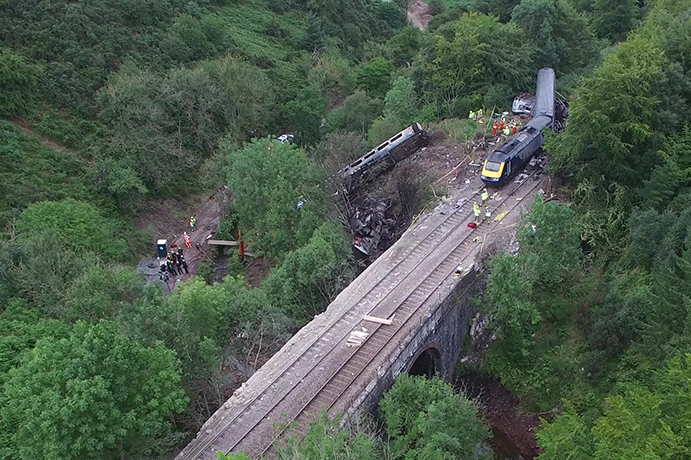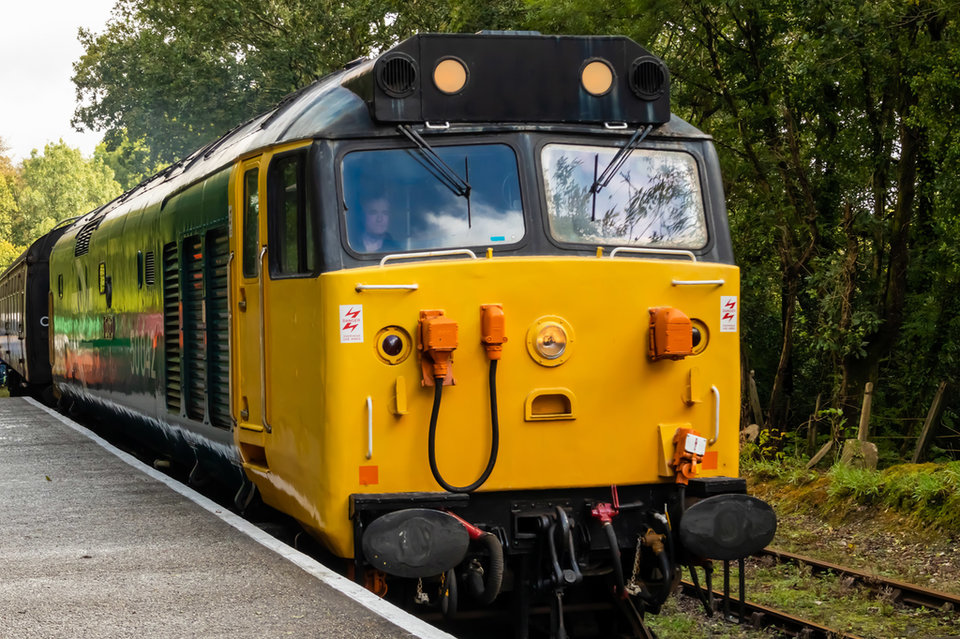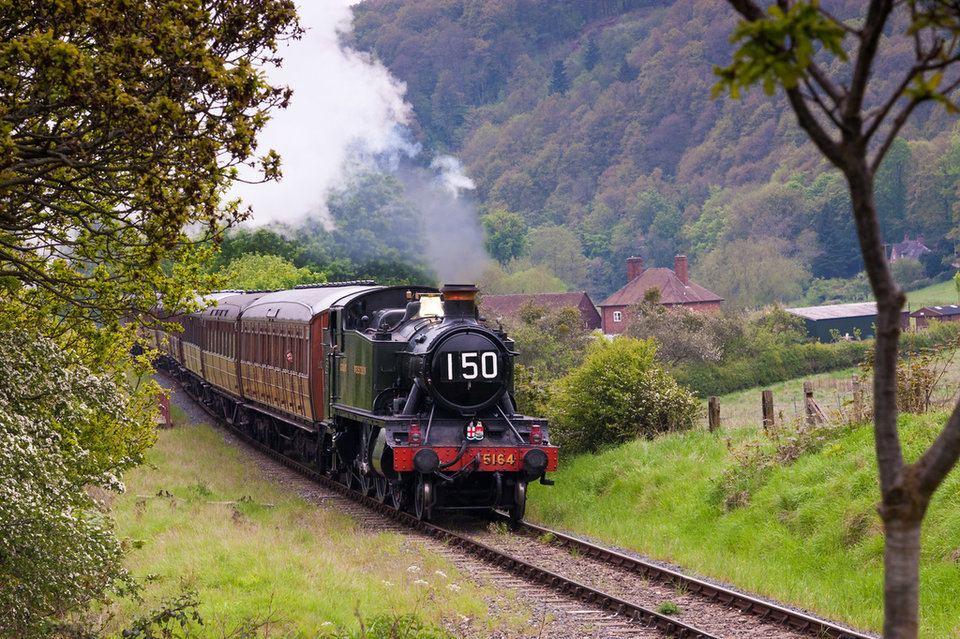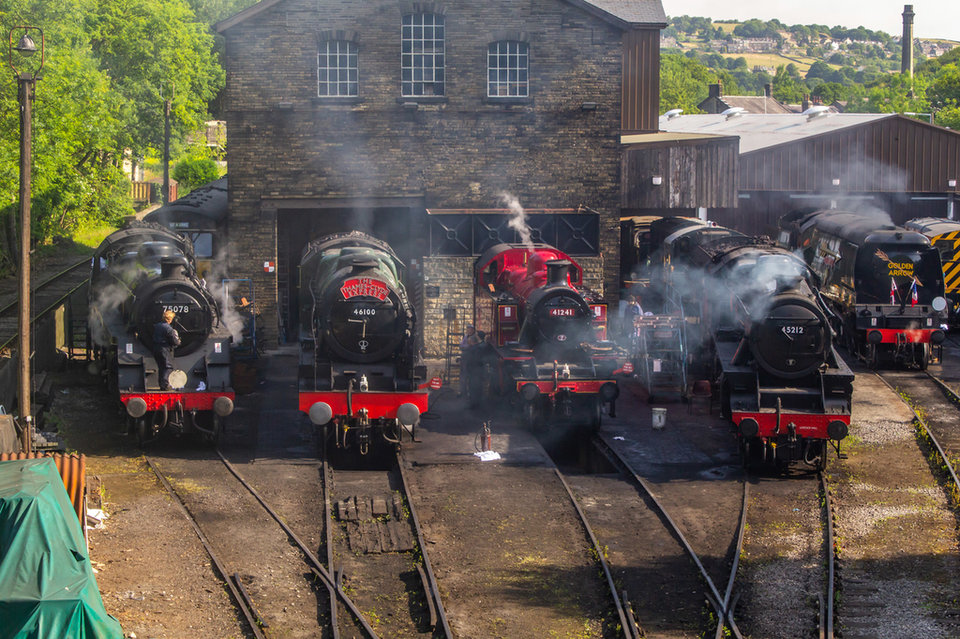Operations
Keeping heritage railways alive during Covid-19
Many UK-based heritage railway operators have found themselves in financial peril due to Covid-19, with some of them tapping into the UK Government’s Culture Recovery Fund. Could the pandemic lead to the end of these historically significant railroads? Ilaria Grasso Macola finds out.



W
hen UK-based events company PNP Events decided to cancel its Polar Express trains running through the holiday season, it didn’t come as a surprise. PNP, alongside train company South Devon Railway, decided that – given the possibility of a new lockdown– it was financially more sensible to cancel the whole season.
“Effectively we would have lost the first weekend of running, […] so we decided as a company that the least risky way of doing it was to cancel the event, unfortunately,” says PNP Events director Phil Neal.
During 2020, what happened to PNP and South Devon became the norm. Covid-19 restrictions imposed by the UK Government have led many companies that operate heritage railways to shut down their services.
The Severn Valley Railway – a heritage steam railway running through Worcestershire and Shropshire – was forced to close its route, shops and cafes while south Devon operator Dartmouth Steam Railway cancelled its Train of Lights.
Despite government funding – which is helping keep companies afloat – the pandemic’s long-term impact on heritage railways is still unknown. Will Covid-19 signify the end of British heritage railways or will the sector manage to get back on its feet?

Aerial view of the derailment. Image: UK Government
A lifeline for the struggling sector
On 5 July, UK Culture Secretary Oliver Dowden unveiled the Culture Recovery Fund, a rescue package for cultural and heritage organisations worth £1.57bn, in a bid to help the sector recover from the first lockdown.
The fund is part of the #HereForCulture campaign – a government initiative to help cultural institutions weather the pandemic’s impact – and is administered through organisations such as the British Film Institute and Historic England.
Within the fund, £88m was allocated as grants, £270m was given as repayable finances and £120m was provided to restart construction on cultural and heritage projects paused because of the pandemic.
“As a nation, it is essential that we preserve our heritage and celebrate and learn from our past,” commented Dowden. “This massive support package will protect our shared heritage for future generations, save jobs and help us prepare for a cultural bounce-back post-Covid-19.”
Through the Culture Recovery Fund for Heritage and the Heritage Stimulus Fund – administered by Historic England and the National Lottery Heritage Fund – 445 organisations will tap into £103m of funding to pay for salaries, maintenance and construction projects.
Our heritage is still facing a perilous future
“Our heritage is still facing a perilous future – we are not out of the woods yet,” commented National Lottery Heritage Fund chief executive Ros Kerslake.“ But this hugely welcome funding from [the UK] Government, and the money we continue to invest from the National Lottery, has undoubtedly stopped heritage and the organisations that care for it being permanently lost.”
Heritage railways were able to apply for subsidies, with 36 heritage railways and tramways collectively being awarded £9m.
“The funding injections announced today will give recipients essential cash to help retain staff and maintain key skills,” explained Heritage Railway Association chief executive Steve Oates. “Cash will also be directed at maintaining rolling stock and infrastructure during the closed winter season, while some will be allocated to a variety of projects and improvements to increase the resilience of heritage railways to ensure they emerge fit and ready for the 2021 season.”
The grants, which range from £20,000 to £906,000, helped heritage railway operators such as Cornwall’s Bodmin & Wenford Railway, which received a £260,000 government grant.
Attracting 60,000 visitors per year, the railway was considered the biggest heritage attraction in Cornwall but had to close its doors when the pandemic hit. Company managers believe that the grant will help it remain in business until the spring.
“As a charitable Trust we’re committed to the preservation of our railway heritage for many years to come,” said Bodmin & Wenford Railway Trust chairman Philip Andrews.
“Since the start of the Covid-19 crisis, we have been working closely with the other groups within the railway to make sure that our industrial and social history is protected and remains available to be shared and enjoyed by future generations. This award enables us to drive these objectives forward.”

Bodmin & Wenford Heritage Railway in September 2019. Credit: Andy Glenn | Shutterstock.com
Making a profit, not breaking even
As a result of the pandemic’s disastrous impact on its finances, Severn Valley Railway was awarded £906,000 in government funding, the highest amount given to a heritage railway company. From the beginning of the pandemic until August, the railway shut down operations, not running any trains and cancelling major events.
“We had to stop our volunteers from coming in and carrying out the tasks that they do, which obviously had an impact on them,” explains Severn Valley head of communications Lesley Carr. “We had to furlough many of our paid staff, simply because we couldn’t afford to keep them on, as there weren’t any jobs for them to do.”
Before the pandemic, Severn Valley had already suffered financial losses due to a series of floods in February that prevented a normal schedule, but it was expecting 2020 to be a good year financially.
We need to make a profit so we can reinvest in the infrastructure and rolling stock
“We were looking forward to a great 2020 season and had no reason to think that anything else was going wrong for us,” she adds. “Everything was looking great even though we had the flood and then coronavirus struck and the whole world turned around. The effect was utterly devastating.”
According to Carr, the company welcomed the £906,000 grant, which allowed it to pay salaries and enhance on-site security, but Severn Valley needs to make a profit so it can improve services. At the time of writing, she says that running in December will be critical as the railway generally makes the most revenue that month.
“The government support has allowed us to break even but we can’t just continue to do that, we need to make profit so we can reinvest in the infrastructure and rolling stock, the important assets we’re looking after,” Carr comments.

The Severn Valley Railway in Worcestershire, UK. Credit: Richard O'Donoghue | Shutterstock.com
The need to adapt in a post-Covid-19 future
Keighley & Worth Valley Railway operations manager Noel Hartley explains that heritage railways will need to adapt if they want to have a future post-pandemic. “To be honest, we’ve learned quite a bit from this whole thing, especially about cutting out waste,” he says.
According to Hartley, Keighley & Worth Valley has been badly hit the pandemic as it was forced to close its routes to the public when lockdown measures were imposed. “From that point, we didn’t have any income for the foreseeable future, and we were completely closed but still had our fixed overheads to cover,” he explains.
The impact of much lower passenger figures will continue into the next year
To cover fixed costs and get into the new year, the company was forced to apply to the Culture Recovery Fund and received £231,000 in subsidies as a result.
“The Culture Recovery Fund has been excellent,” Hartley adds. “I think without that we would have really struggled, because the impact of much lower passenger figures will continue into the next year.”
Hartley says that heritage railways need to embrace the change brought on by Covid-19 to reimagine their business model if they don’t want to become a thing of the past.
“One of the things you get stuck into, particularly in heritage, is that ‘we’ve always done it like that, we don’t need to change’ attitude,” he continues.
“I think this pandemic has forced us to change in many areas. I think going forward, we’re going to be less afraid of change and we’ll be certainly taking those lessons [learnt during the pandemic] and use them.”

Steam engines outside Haworth Station on the Keighley & Worth Valley Railway in 2018. Credit: J. Jackson UK | Shutterstock.com